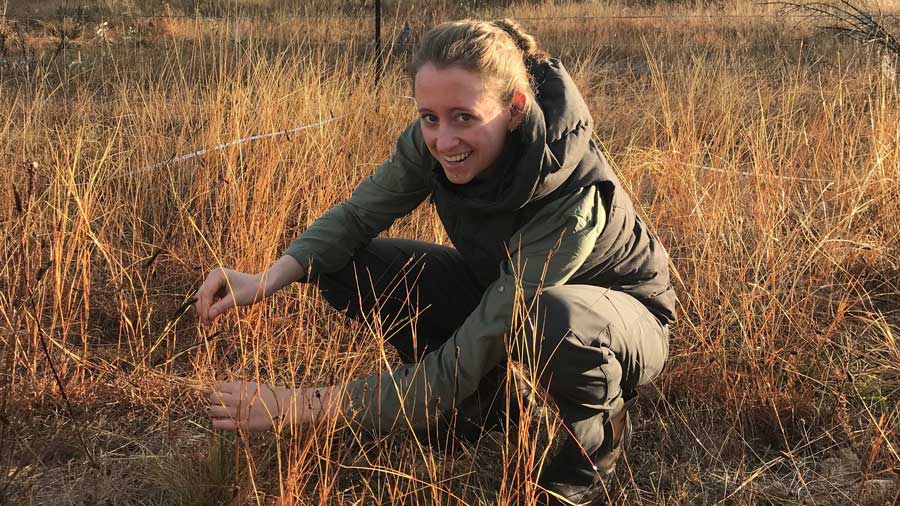
I've always been a bit of a plant nerd, and grew up spending weekends bashing around in the coastal bush reserve backing on to our family holiday home. Perhaps it was inevitable that I would end up studying botany and ecology! But at school I was always more interested in the humanities, so I decided to have the best of both worlds and enrol in a Bachelor of Arts/Bachelor of Science at the University of Melbourne.
Through the human geography major I found a discipline that combined these social and environmental perspectives, and then, in my final years, a few inspired and inspiring lectures and lecturers led me on a path to focussing on fire ecology and management.
Having studied such a broad undergraduate degree, I knew that I wanted to find a Masters course that would help me focus my interests, and that would offer opportunities to undertake the kind of research I was interested in.
I soon enrolled in the Master of Forest Ecosystem Science (MFES) and it was the best decision I could have made! From studying the effects of fire and disturbances on Melbourne's forested catchments, to travelling around Laos and Vietnam learning about international forest policy and the role of forests in rural development, I was soon caught up in the range of subjects offered that went far beyond my previously limited conception of forestry.
After graduating I took a year off to travel the world, before making the move from inner city Melbourne to the small town of Mudgee in regional NSW, where I accepted a role as a graduate ecologist with Eco Logical Australia (ELA). I got to spend days on end out in the bush with senior botanists and ecologists, hiking over sandstone cliffs, learning the ins and outs of grassy woodland rehabilitation and honing the skills I'd learnt through my undergraduate botany major.
I've spent the last 18 months in Canberra, leading many of ELA's ecology projects around the ACT and NSW Southern Tablelands. I've managed and implemented a huge range of projects in biodiversity impact assessment, vegetation mapping and monitoring, targeted threatened species surveys and much more! This is one of the best things about consulting - the diversity of projects you get to work on, and the great balance between field experience and office-based reporting and project management.

While everyone's path through studies will be different, here's a few pieces of advice that have helped guide my decisions throughout my journey so far:
- Get involved: There are so many amazing opportunities available while you're studying. Getting involved in student associations, such as the International Forestry Students’ Association (IFSA), not only offers amazing opportunities for travel and professional development but can also help forge connections with peers and professionals that will help you as you advance through your studies and future career.
- Stand out from the crowd: While I worried, at first, that studying forest science might restrict me to working in a forest-specific career, I feel that it's made me stand out amongst the many more general environment studies graduates. It has had the added benefit of helping me become part of, and known within, a strong forestry community both in Australia and around the world (through my involvement with IFSA), which has provided me with so many opportunities that I wouldn't have otherwise had. My company has also just hired another MFES graduate, and our manager said that it was their background in forest ecology, landscape-scale studies, and involvement with IFSA that made them stand out from other applicants.
- Don't be afraid to do things differently: I may get in trouble for saying this, but each and every one of my degrees and majors was done outside the scope of the official handbook entry. If you have a particular focus or passion, it's often about finding the right person to talk to, and the right course that will give you either the focus or flexibility you need.
- Think ahead, but don't get stuck on an end goal: I remember worrying, at the start of 5th year, that I still didn't know what I wanted to do. A friend gave me some advice that has stuck with me and, to this day, guides my professional decision-making. While you may struggle to identify some defined end point of what you want to do, you likely have an idea of your interests and the kinds of skills you'd like to develop. Pursue opportunities that align with these interests and goals - you'll be surprised where you might end up!